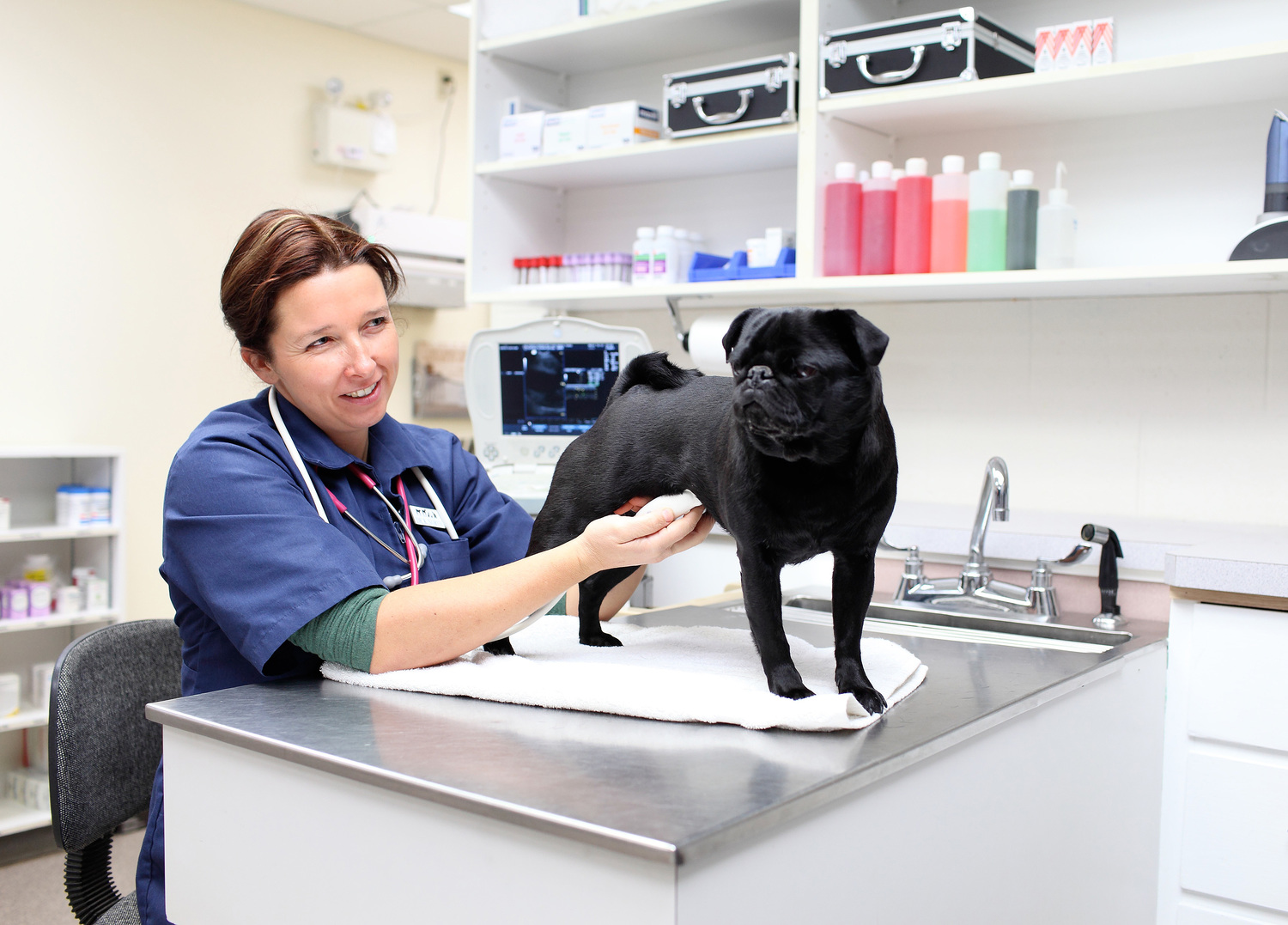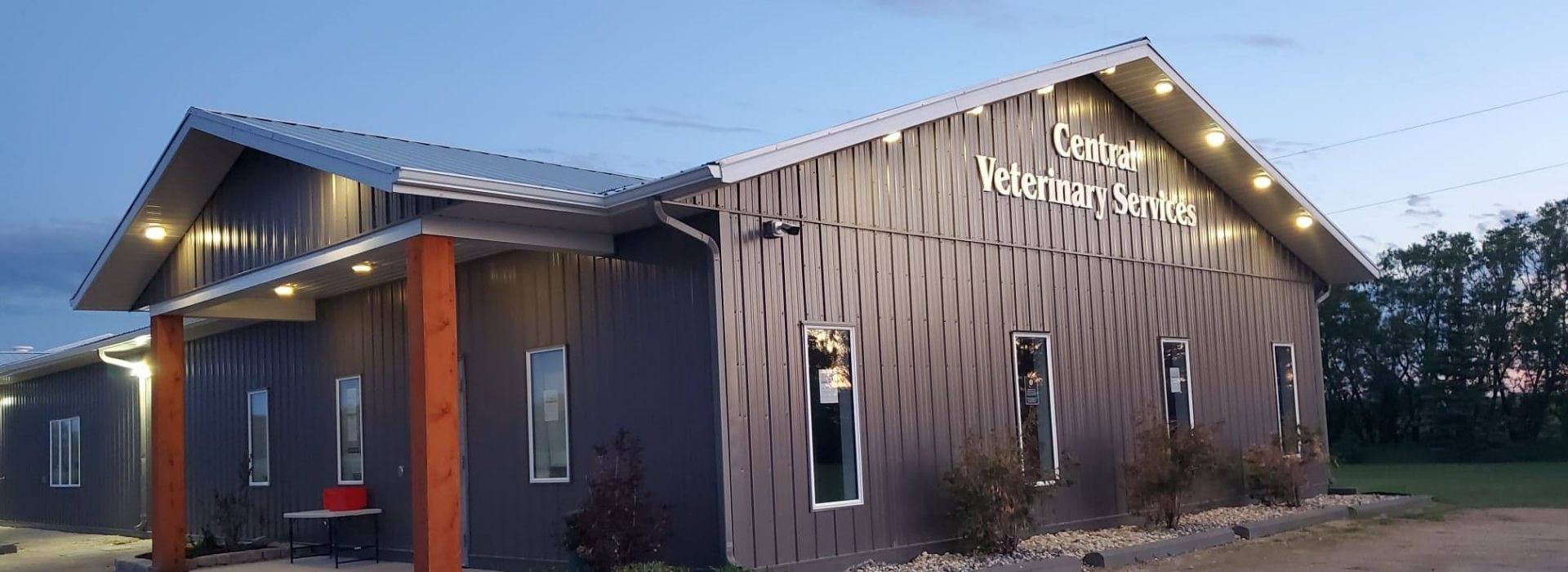Vet services for exotic pets: unique treatments available
Wiki Article
How a Veterinary Specialty Hospital Can Heal Your Animal's Conditions With Advanced Techniques
Veterinary specialty hospitals play a necessary duty in resolving complex health concerns in pet dogs. They make use of innovative techniques and technologies that improve medical diagnosis and therapy. With access to specialized solutions, family pet owners can find customized remedies for their animals' conditions. This elevates vital questions regarding the specific techniques used and the advantages they supply. Understanding these aspects can notably impact a pet dog's recuperation journey.Comprehending the Duty of Veterinary Specialty Hospitals
Although medical care vets offer vital services for pet wellness, veterinary specialty hospitals play a critical function in attending to complicated medical problems that require sophisticated diagnostics and therapy. These facilities are equipped with specialized technology and skilled specialists that concentrate on certain areas of veterinary medicine, such as cardiology, neurology, and oncology.Veterinary specialty hospitals assist in a collective approach, usually functioning in combination with an animal's primary veterinarian to create extensive care strategies. They provide access to sophisticated imaging techniques, such as MRI and CT scans, which are not normally readily available in basic centers. On top of that, these hospitals use extensive treatment systems for critically ill pets, guaranteeing round-the-clock surveillance and assistance.
Specialized Solutions Supplied by Veterinary Specialists
Veterinary experts offer necessary services that improve animal health care, specifically through advanced diagnostic imaging methods. These tools make it possible for precise evaluations of complicated clinical problems, causing extra effective targeted treatment strategies. By incorporating these specialized solutions, vet hospitals can greatly improve client outcomes and general wellness.Advanced Diagnostic Imaging
Advanced diagnostic imaging plays an essential role in modern-day veterinary medication, making it possible for professionals to acquire comprehensive insights into a family pet's health. Techniques such as X-rays, ultrasound, computed tomography (CT), and magnetic resonance imaging (MRI) allow vets to imagine interior structures without intrusive treatments - Learn More. These sophisticated imaging modalities help in detecting a selection of conditions, from cracks and lumps to organ abnormalities. By giving clear images, they improve the precision of analyses, which is vital for efficient treatment preparation. Additionally, specialized veterinary radiologists translate these pictures, guaranteeing that refined problems are not neglected. Eventually, progressed diagnostic imaging is critical in providing substantial care, as it allows for early discovery and treatment in an animal's clinical issues
Targeted Treatment Plans
Targeted treatment plans are necessary for addressing the specific health and wellness demands of family pets, making certain that each animal obtains customized care tailored to its one-of-a-kind condition. Veterinary professionals establish these plans based on complete analyses, including advanced diagnostic imaging and lab examinations. By concentrating on the specific animal's diagnosis, lifestyle, type, and age, professionals can recommend effective treatments, varying from medicine changes to medical treatments. These plans also integrate follow-up treatment and checking to track the pet's progress and make required changes. This technique promotes ideal outcomes and enhances the overall quality of life for family pets dealing with complicated health and wellness challenges. Inevitably, targeted therapy strategies represent a commitment to giving the greatest criterion of veterinary care.Advanced Diagnostic Techniques for Accurate Diagnoses
As family pets face increasingly complicated health and wellness obstacles, the combination of advanced analysis methods has actually ended up being vital for achieving accurate diagnoses. Veterinary specialty hospitals utilize modern imaging modern technologies, such as MRI and CT checks, to imagine interior structures with exceptional clarity. These techniques permit veterinarians to identify problems that might not show up with standard approaches.Along with imaging, advanced laboratory tests, including hereditary and biomarker evaluations, supply crucial understandings into underlying conditions. These tests allow vets to spot conditions at earlier stages, helping with timely treatment. Additionally, making use of endoscopy permits straight visualization of internal organs, assisting in the medical diagnosis of respiratory and stomach issues.
Innovative Therapy Alternatives for Complex Conditions
Innovative therapy alternatives for intricate conditions in family pets have arised as an essential focus within veterinary specialty hospitals. Making use of cutting-edge diagnostic tools, these centers enhance their capability to determine problems accurately and customize ideal treatments. Vet services. Furthermore, the execution of minimally invasive procedures and advanced recovery strategies supplies pet dogs a better chance at recuperation with minimized discomfortAdvanced Diagnostic Devices
While the landscape of vet medicine remains to progress, innovative diagnostic devices have become vital possessions for dealing with intricate problems in pet dogs. These innovative innovations, consisting of digital imaging, ultrasound, and molecular diagnostics, enable vets to obtain specific information regarding a pet's health condition promptly. High-resolution imaging techniques can disclose detailed information of inner frameworks, allowing exact assessments of conditions or injuries. In addition, hereditary testing provides understandings right into hereditary problems, directing customized treatment plans. By leveraging these innovative diagnostic devices, veterinary specialty hospitals can improve their ability to recognize conditions that may have formerly gone undiscovered. Eventually, these advancements add to boosted outcomes and enhance the total top quality of care supplied to precious animals.Minimally Intrusive Treatments
Innovations in veterinary medication have paved the means for minimally intrusive treatments, which use new treatment alternatives for complex problems in family pets. These cutting-edge strategies, such as laparoscopy and endoscopy, permit vets to do surgical treatments with smaller lacerations, reducing trauma and recovery time. By using specialized instruments and video cameras, vets can diagnose and deal with problems like tumors, stomach conditions, and joint issues with precision - Learn More. This strategy decreases pain and causes quicker healing, making it possible for family pets to return to their typical tasks sooner. On top of that, minimally invasive treatments usually lead to less scarring and a reduced risk of problems. As vet specialty hospitals embrace these sophisticated methods, family pet owners can really feel much more positive in their family pets' care and total wellnessAdvanced Rehab Techniques
As vet medicine progresses, advanced rehab techniques are ending up being necessary for handling intricate conditions in family pets. These approaches incorporate a series of cutting-edge therapy alternatives, including hydrotherapy, laser therapy, and physical therapy. Hydrotherapy utilizes water resistance to improve wheelchair and strengthen muscles, valuable for pets recouping from surgery or injury. Laser therapy promotes healing by my latest blog post reducing inflammation and discomfort, cultivating quicker healing times. Physical treatment employs targeted exercises to boost strength and adaptability, customized to each animal's certain needs - Veterinary. Furthermore, techniques like acupuncture and chiropractic care modifications can even more support rehabilitation by easing pain and enhancing total wellness. Veterinary specialty hospitals are progressively including these techniques, ensuring family pets receive detailed care that addresses both emotional and physical healing, eventually boosting their lifestyleThe Relevance of a Multidisciplinary Approach
A multidisciplinary approach in vet care greatly boosts the therapy results for family pets, as it incorporates knowledge from different specializeds to address complicated health and wellness problems. This collective technique includes veterinarians, professionals, technicians, and assistance personnel working together to formulate comprehensive therapy plans tailored to every animal's one-of-a-kind requirements. By combining expertise from fields such as surgical treatment, internal medication, oncology, and recovery, vets can recognize hidden problems that may otherwise go unnoticed.This technique fosters interaction among team participants, making certain that all aspects of an animal's health and wellness are considered. A pet dog recovering from surgery may profit from input from both a rehabilitation and a specialist professional, leading to a more reliable healing process. Eventually, a multidisciplinary technique not just improves the high quality of treatment but also improves the total health of pet dogs, giving them with the very best chance for an effective healing and long-lasting health.
Cutting-Edge Modern Technology in Veterinary Medicine

Telemedicine has additionally become a necessary resource, making it possible for vets to seek advice from with pet owners from another location, thereby facilitating timely treatments. Furthermore, the assimilation of expert system in assessing clinical data adds to much more efficient therapy plans customized to specific needs. Advanced lab equipment permits rapid blood evaluation and pathogen discovery, cultivating punctual clinical responses. As veterinary specialty hospitals proceed to include these improvements, they not only enhance the top quality of treatment however additionally greatly boost the overall wellness of pet dogs.
Success Stories: Real-Life Examples of Family Pet Recovery
Various heartfelt success stories illustrate the exceptional recoveries of pet dogs dealt with at veterinary specialty hospitals. One such case involved Bella, a Golden Retriever identified with a serious orthopedic problem. After advanced surgical intervention and rehab, Bella was not just able to stroll once more however also to run happily in the park, much to her owners' joy.Another motivating tale features Max, a pet cat with persistent kidney condition. Via specialized nutritional monitoring and innovative therapies, Max's condition stabilized, allowing him to restore his power and hunger. His owners were overjoyed to see him return to his lively self.
Luna, a Dachshund who suffered a back injury, underwent sophisticated treatments, leading to a miraculous recovery. These stories highlight the competence and concern located in vet specialty hospitals, showcasing their capacity to restore wellness and happiness to cherished animals and their households.
Regularly Asked Concerns
What Should I Anticipate Throughout My Pet dog's Specialty Examination?
Throughout a specialty consultation, pet owners can expect a detailed evaluation, comprehensive clinical history discussions, analysis tests, and tailored treatment alternatives. The vet specialist will supply understandings and referrals for the family pet's details wellness needs.How Can I Find a Veterinary Specialty Hospital Near Me?
To discover a veterinary specialty hospital close by, one can make use of on-line search engines, check regional directory sites, or look for recommendations from key veterinarians. In addition, family pet proprietor discussion forums can supply valuable insights and experiences about nearby facilities.Are Specialty Provider Covered by Pet Dog Insurance Policy?
Specialty services may be covered by pet dog insurance policy, but coverage differs by plan. Owners must carefully examine their insurance plan information and consult their provider to comprehend the level of insurance coverage for specialty vet solutions.The Length Of Time Will My Pet dog's Therapy Take?

The period of a pet dog's therapy can vary substantially, often varying from a couple of days to several weeks. Aspects affecting this timeline consist of the certain condition, treatment type, and the family pet's general wellness and action.
What Are the Costs Related To Specialty Veterinary Care?
The expenses connected with specialty vet treatment can differ commonly, generally ranging from hundreds to thousands of bucks. Elements affecting these expenses include the complexity of the condition, called for therapies, and analysis procedures essential for effective treatment.Veterinary specialty hospitals play a crucial duty in addressing complicated health concerns in animals. Key treatment veterinarians offer crucial services for pet health and wellness, vet specialty hospitals play an essential duty in attending to complicated clinical problems that require innovative diagnostics and therapy. Veterinary specialty hospitals assist in a collective strategy, typically functioning in conjunction with a family pet's key vet to develop detailed treatment strategies. Ingenious therapy options for complicated problems in pet dogs have actually emerged as a crucial focus within vet specialty hospitals. A multidisciplinary method in veterinary treatment significantly boosts the therapy end results for animals, as it incorporates know-how from various specialties to deal with intricate wellness problems.
Report this wiki page